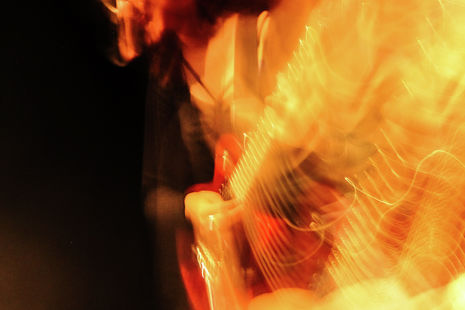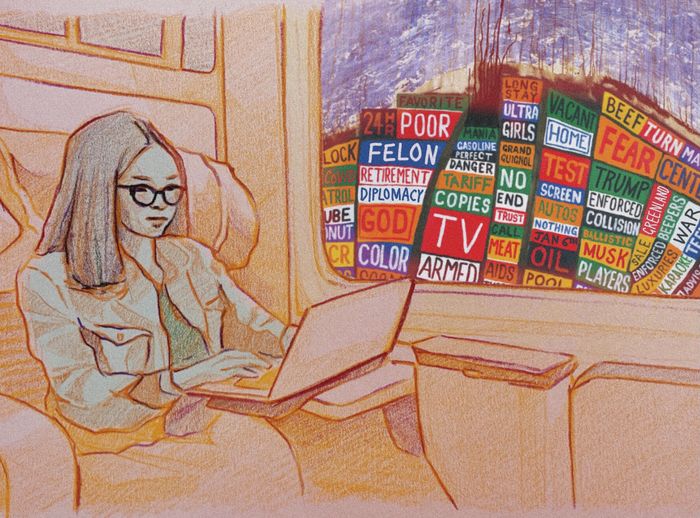The conclusive case for Black classical music
Ruby Wooller looks back on Yussef Dayes’ Royal Albert Hall show

Nina Simone called her music ‘Black classical music’. So did Rahsaan Roland Kirk, an eccentric, mid-20th century, woodwind instrumentalist renowned for his textured onstage performances which blended political monologuing with improvisation. Simone, who for twenty-two years wanted to be the world’s first Black concert pianist, explained in her autobiography that the assigned term jazz neglected the heterogeneity of her music and was ultimately “a white term to define black people”.
These are the inspirations behind the title of Yussef Dayes’ 2023 solo debut Black Classical Music, a sprawling nineteen-track record that soars between the lofty contours of pan-diasporic inspiration and manages to remain not only cohesive but sharply personal.
“The record manages to remain not only cohesive but sharply personal”
On the title track, London saxophonist Venna’s notes quickly dissipate into a whirlwind of percussion, a manifesto for the unburdened sound of the album.
Dayes grew up drumming in jazz bands, playing for Jools Holland during his GCSEs with United Vibrations, a quartet featuring two of his brothers. The haunting strings of Magnolia Symphony exhibit his time spent with orchestras. While his classical training likely contributes to his searingly technical talent, he resists subscribing to the formalised constraints of one genre or historical ethos. In an interview with The Guardian, he explains that while he has no problem with the label of jazz, “there are other ways to articulate what we are doing”. The fluidity with which he traverses sonic landscapes is rooted in his holistic musical education. He says that “I’ve had classical piano lessons. I’ve been to West Africa and seen instruments that predate the cello and violin, drums that were there before the Timpani”. His compositions on the track ‘Afro-Cubanism’ celebrate this rich inheritance of percussion styles.
“Dayes draws together a mosaic of his influences, giving listeners access into the kaleidoscopic detail of his creative imagination”
Dayes’ musical hybridity has contributed to what has been considered a ‘Renaissance’ of contemporary UK jazz in the second half of the 2010s. Having absorbed the schoolings of musical juggernauts such as John Coltrane and Miles Davis (Dayes was even taught by Davis’ drummer, Billy Cobham), this new wave of artists has been intentional with their experimentation. They have cultivated a spirit of collaboration that ensures no tradition is left in the dust.
Generous collaboration clearly comes second nature to Dayes, setting aside space for experimental moments such as Elijah Fox’s ambient synths on ‘Crystal Palace Park’. His drums take on a supportive muted role on ‘Pon di Plaza’, making way for dancehall artist Chronixx while Rust sees him reunite with Tom Misch after the success of their 2020 lockdown album What Kinda Music, which hit Number 4 on the album charts.
Mainstream success has given contemporary jazz in the UK a wider audience. In 2023, The Ezra Collective became the first jazz group to win the prestigious Mercury Prize, as well as the first jazz act to headline Wembley, a milestone in representation.
Preserving instrumental diversity and traditional ensemble dynamics in popular culture is a cause many music programmes are tirelessly dedicated to. In Cambridge, JazzSoc’s open jams invite audience improvisation at any skill level, making collaborative performance excitingly spontaneous and accessible. We need more of these initiatives readily and cheaply available to anyone with the passion to continue fostering the flourishing of UK jazz.
The rich texture of Black Classical Music resides not just in instrumental variety. ‘The Light’ features his young daughter and you can hear his late mother, a yoga instructor, teaching a lesson on ‘Cowrie Charms’, a song that takes its name from shells circulated as currency and as symbols of wealth and fertility in ancient civilisations. These shells decorate the frame of his album cover.
Dayes draws together a mosaic of his influences, giving listeners access into the kaleidoscopic detail of his creative imagination. This autobiographical fullness extends out of the record, evident in his pop-up installation set up in Soho, replicating a room from his family home in which his father gave a yoga class each morning.
With an inspirational instinct for collaboration, Dayes paves a path through the treasured past of the genre and recruits new talented musicians to set his sights on energized horizons. Black Classical Music is a panoramic sensory experience that makes the future of contemporary British jazz appear brighter.
 Comment / The (Dys)functions of student politics at Cambridge19 January 2026
Comment / The (Dys)functions of student politics at Cambridge19 January 2026 Arts / Exploring Cambridge’s modernist architecture20 January 2026
Arts / Exploring Cambridge’s modernist architecture20 January 2026 Features / Exploring Cambridge’s past, present, and future18 January 2026
Features / Exploring Cambridge’s past, present, and future18 January 2026 News / Local business in trademark battle with Uni over use of ‘Cambridge’17 January 2026
News / Local business in trademark battle with Uni over use of ‘Cambridge’17 January 2026 News / Your Party protesters rally against US action in Venezuela19 January 2026
News / Your Party protesters rally against US action in Venezuela19 January 2026









